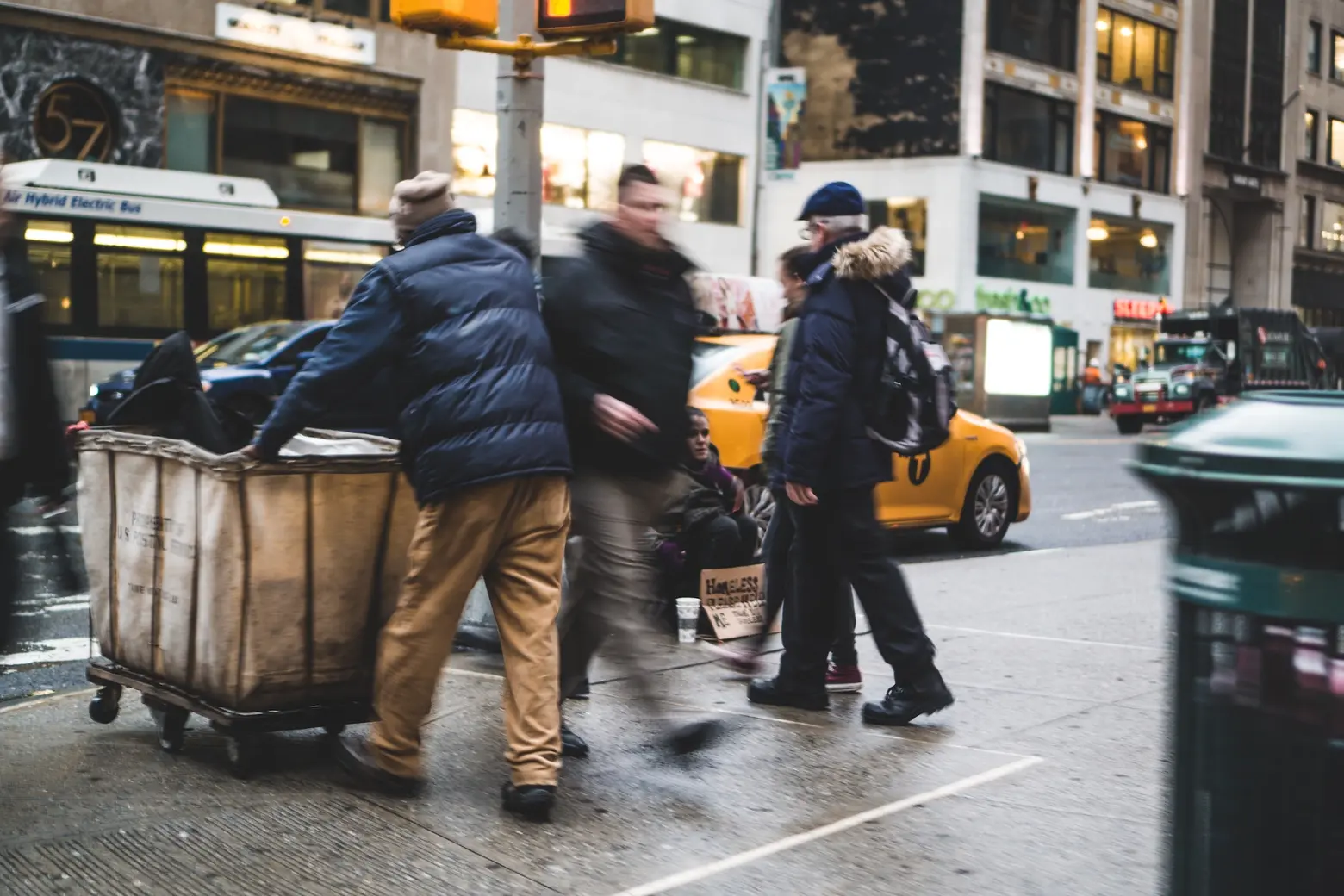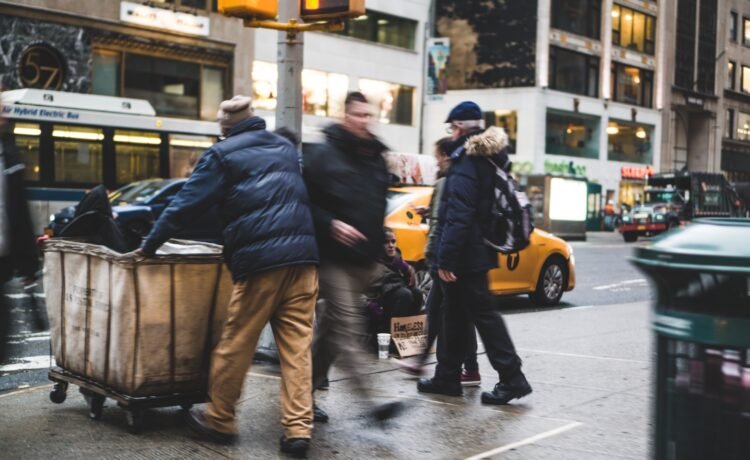
President Donald Trump on Thursday signed an executive order calling for tougher enforcement on homelessness, including expanded use of involuntary commitment of people living on the streets. The “Ending Crime and Disorder on America’s Streets” directive urges cities and states to clear encampments and place people into mental health or addiction treatment programs. It also proposes shifting federal grants away from housing-first initiatives and toward programs that mandate sobriety or treatment, as well as to cities that enforce encampment bans.
The order directs the Departments of Health and Human Services, Housing and Urban Development, and Transportation to review federal grant programs and prioritize funding for jurisdictions that crack down on illicit drug use, urban encampments, loitering, and squatting.
It calls on the Substance Abuse and Mental Health Services Administration to defund addiction programs that include “harm reduction”—a move that could affect frontline efforts to prevent overdoses from fentanyl and other street drugs, according to NPR.
“The Federal Government and the States have spent tens of billions of dollars on failed programs that address homelessness but not its root causes, leaving other citizens vulnerable to public safety threats,” the order reads.
“Shifting homeless individuals into long-term institutional settings for humane treatment through the appropriate use of civil commitment will restore public order. Surrendering our cities and citizens to disorder and fear is neither compassionate to the homeless nor other citizens.”
According to public health experts, harm reduction programs—such as those that provide clean needles and other supplies—are a key part of helping people survive addiction. The order, however, argues that such programs “facilitate illegal drug use” and dismisses research from scientists at the Centers for Disease Control and Prevention showing their effectiveness.
The order marks a departure from a two-decade-long bipartisan consensus that prioritized housing first, followed by mental health or addiction treatment. However, this approach has faced increased criticism in recent years as the number of homeless people in the U.S. continues to rise. Last year, data showed that more than 770,000 people were living in shelters or outdoors, an 18 percent increase from the previous year, according to NPR.
Jawanza Williams, director of organizing for VOCAL-US, criticized the executive order as an ineffective response that will ultimately worsen homelessness.
“This executive order is an attack on people whose only crime is being unable to survive our nation’s housing crisis, or find mental healthcare. But what else should Americans expect from our billionaire landlord President,” Williams said. “Let’s be clear: President Trump is not interested in getting people into housing they can afford, or mental health care they need. He is only interested in getting people off the streets, even if it means into a jail cell or detention centers for the homeless.”
He continued: “These actions are not just cruel, they are ineffective, they waste tax dollars and will only worsen our nation’s historic homeless crisis. Instead of looking to the leadership of local communities, the Trump Administration is again ignoring their solutions and imposing policies that don’t work.”
The order builds upon a Supreme Court ruling last year that said cities could punish people for sleeping outside, even if they have nowhere else to go. Since the ruling, over 100 cities across more than two dozen states have passed or intensified bans on homeless encampments, according to NPR.
Trump’s order comes on the same day the Department of Justice filed a lawsuit against Mayor Eric Adams over New York City’s sanctuary city policies. The DOJ argues that rules restricting city officials from cooperating with federal immigration enforcement are unconstitutional and amount to “intentional sabotage of federal immigration enforcement,” according to Gothamist.
Adams has been critical of the city’s sanctuary policies and has aligned himself with the president on many immigration issues. Kayla Mamelak Altus, a spokesperson for Adams, told CBS news that City Hall is reviewing the lawsuit and said the mayor supported changing the laws to target criminals.
“The job of a mayor is to protect the safety of every single person in their city–and that’s exactly what Mayor Adams has worked to do every day for nearly four years. Keeping New Yorkers safe also means making sure they feel safe, and Mayor Adams has been clear: no one should be afraid to dial 911, send their kids to school, or go to the hospital, and no New Yorker should feel forced to hide in the shadows.”
“That’s why the mayor supports the essence of the local laws put in place by the City Council — but he has also been clear they go too far when it comes to dealing with those violent criminals on our streets and has urged the Council to re-examine them to ensure we can effectively work with the federal government to make our city safer. So far, the Council has refused.”
RELATED:







Recent Comments